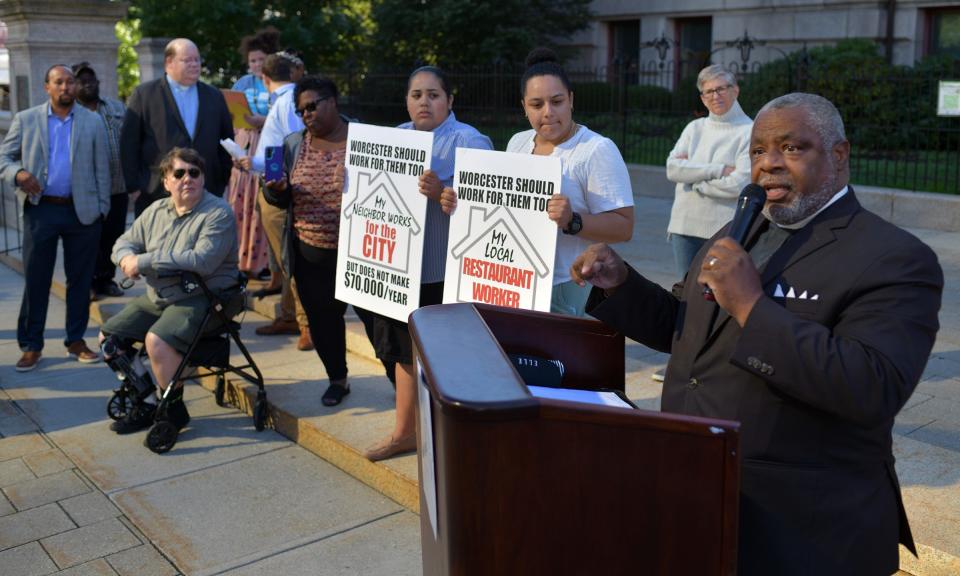Inclusionary zoning proposal moves to Planning Board in Worcester after City Council vote
WORCESTER — The City Council voted unanimously Thursday to send a proposed inclusionary zoning ordinance to the Planning Board, the first of several steps of public review before the measure can become law.
“This is not the end of the issue,” Mayor Joseph M. Petty said at the council’s Thursday night meeting, calling the housing crisis “one of the biggest issues the city’s facing, the state’s facing, the country’s facing.”

“We want to bring developers in, bring housing advocates in, so we can all understand,” Petty continued. “I think everybody knows this is important.”
Inclusionary zoning is a tool used by communities to ensure a certain amount of affordable housing is included in residential development projects.
Former City Manager Edward M. Augustus Jr. proposed in May that the city adopt an inclusionary zoning ordinance, and the Economic Development Committee of the City Council has been debating what exactly that policy will look like.
The city unveiled a proposed ordinance earlier this month that tries to balance incentivizing developers while also meeting the affordable housing needs of residents.
The plan includes three main facets:
It proposes developers of more than 12-unit projects set aside 15% of habitable square footage at 80% of area median income or 10% of habitable square footage at 60% AMI (roughly $53,000 for a family of two) or some combination thereof.
It caps rents and sale prices for an affordable housing unit to no more than fair market rent or 30% of the qualifying family’s income.
A payment-in-lieu option is available, where developers can pay into the new Affordable Housing Trust Fund rather than offer affordable units.
The proposed ordinance has a bit of a journey before it is adopted, however.
First, it goes to the Planning Board for a public hearing and members report back to the council for discussion. Then the council will send it to the economic development subcommittee for a public hearing.
The subcommittee will send its recommendation to the full council where the ordinance will be debated and councilors will be asked to approve. The ordinance must be adopted by a two-thirds majority, or have eight yes votes.
Moreover, the affordability levels at which the units would be set continued to prompt debate.
“At this time of the peak of the housing crisis, we need all hands on deck,” District 5 Councilor Etel Haxhiaj said. “I hope that through this ordinance, that we strengthen it, and divert incentives to folks from 60% AMI and below, because that’s the people that are really struggling.”
At-large Councilor Khrystian King noted that homelessness in Greater Worcester had increased nearly 50% from March 2021 to March 2022, and said that groups have been arguing for income levels as low as 30% AMI as “crucial.” He also asked for reports on how many veterans the city served and how many would qualify for housing at 30%, 60% and 80% AMI.
But, as they did last week, councilors signaled that — while details still may need to be worked out — they were in favor of the proposal.
“I think this inclusionary zoning draft is a great start and way to have the conversations with the community, residents, developers, the business community and others, and I’m really excited to…make sure (all) voices are heard and this is an inclusive a policy as possible,” District 1 Councilor Sean Rose said. “There are lots of priorities. I look forward to making sure we get as many of those priorities onboard in this policy as we can.”
District 4 Councilor Sarai Rivera praised the policy as “bringing a level of humanity back” to the city’s economic development.
“What this ordinance is doing is bringing a level of humanity back - putting people over profit,” Rivera said. “We need development, we need economic development…but we want to make sure it doesn’t come at the cost of people.”
This article originally appeared on Telegram & Gazette: Worcester City Council sends inclusionary zoning to Planning Board
